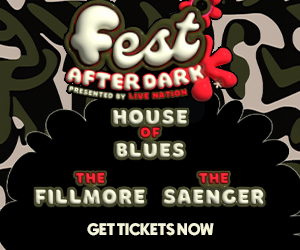 |
It is uncertain where in the chasm of history to begin this discussion. With whether or not Hermes Trismegistus, the grandpappy of Hermeticism and Its Traditions, was the corporeal embodiment of Thoth-cum-Hermes and god-bearer of all universal wisdom, or just an excitable 3rd Century CE neo-Platonic Christian monk? Or, just cut to 1952 EV (Aleister Crowley’s designation for the Era Vulgaris), when an irascible, elfin polymath, artist of talents rarely granted puny humans, and actual practicing alchemist, one Harry Smith, persuaded and/or allowed Moe Asch at Folkways to let him edit what became three double-LP sets anthologized from his collection of THOUSANDS of 78s? This selection of 84 songs, ballads and “social music,” The Anthology of American Folk Music, Vols. 1, 2, & 3 was to be limited and hermetically arranged to all All-Amerikan “race” and “hillbilly” recordings. The result created Color Blindness, as music academics and critics spazzed attempting to identify the race of the mutant bullfrog or adenoid-affliction-twanged “sangers,” infected and fertilized the mid-last century’s folk revival scene like radioactive Miracle-Gro; and rock ’n’ roll was never the same. It was Harry’s populist philosopher’s stonage.
If anyone reclaimed the term SUPERgenius from the paws of Wile .E. Coyote, it was Harry. His pursuit of the aortic entrance to Truth and Knowledge involved his hand-painted and collage animation films, and a full-time analysis of his collections, from musics from far afield of just the dark and bleak moans of rural America’s underclass in the Anthology, to Ukrainian Easter egg designs, Appalachian quilts, Highland kilts, ethnic variations of Cat’s Cradles, et alia ad gloriam. These obsessions are now of legend amongst underground film fans, fellow ethnomusicologists, and occultists of a somewhat higher degree of learning than one finds skulking around goth emporia in The Quarter. His Anthology, for all of its influence and hoo-haw, is a Minor Opus, as if Beethoven or Bartok had thrown together a party tape. Harry was easily one of the planet’s greatest filmmakers, ever.
In the turning years of the last and current centuries, Hal Willner, producer and impresario of some of the most tastefully dark and genuinely ultrahip tribute events and albums of the past couple of decades, turned his attention to Harry and the Anthologies. The result was five evenings of multiple performances betwixt London, Brooklyn and L.A., and this 2-CD & 2-DVD testament from these sheebangs (and a pertinent PBSesque doc) in a LP-size box set that conveniently apes the Smithsonian’s much-hoohawed ’97 CD reissue. To cover and value this community chest of dark words and weird tunings, Willner turned to his cast of (mostly dark) usual suspects: Nick Cave, Marianne Faithfull, Lou Reed, Elvis Costello, Syd Straw. The Aura of Darkness interestingly lingers a bit more heavily on the East Coast shows: New York gets Cave, Sonic Youth, Reed, and a Fugs re-une, while UCLA gets Beck, Costello, Steve Earle and A Mighty Wind posing as super-honky Anthology pseudo-alums, the Folksmen. Fortunately, everyone gets the McGarrigle Sisters and the redoubtable V.D. Parks.
The problem that all tributes present, that of wasting one’s time with some industry poseur crying for art cred whilst crooning over some studio hack’s reverential-but-updated-to-street-taste arrangements when the ur-materiale is abundantly available for gleeful wallow, is here on occasion, but mostly waylaid by Mr. Willner’s nose for sniffing talent for the works that are just outré and off-the-industry-graph to work memorably.
At least half of these versions are worth the listen, though, and the standouts are real Howl. Cave overwrings his Calls in “John the Revelator”, but Ms. Straw and cohort’s gogo girlie Response redeem all. This is important, as the song was Harry’s all-time fave, especially as the Blind Mr. Johnson clearly had less of a notion of interpreting the visions of the very disturbed John of Patmos than Mr. Manson and his gogo henchgirls whenever he croaked it out. An apotheosis of American Weirdness. Both of David Thomas’s entries are completely insane, especially the Anth’s ultimate piece, Henry Thomas’s “Fishing Blues”: Papa Ubu’s gone a-fishin’, I’m a goin’ fishin’ too, albeit perhaps a tad upstream. The real glory is the McGarrigles’ feminist revision of “Sugar Baby,” which vies with its intense beauty the bizarre spectacle of Werner Herzog’s paroxysms to Dock Boggs’s original in Julien Donkey-Boy for a lasting, cogent image.
Most of the documentary The Old, Weird America gets the nod, too, as it veers and wends from project self-promotion to actual discussions of Harry’s full legacy jacket, as if American Masters collides with American Experience. The bonus feature is especially valuable: Films No. 2, No. 7 and the truly jaw-dislodging No. 10. Choice of recent homage-enized soundtracks or silence. No. 10 was re-edited down for No. 11 to fit one of the great soundtracks of all time: Monk’s “Misterioso” with Milt Jackson, jackson, recorded by (you get one guess) in ’48, but that ain’t here. And No. 10 is one of Harry’s few films to run silent, so select that last option. It’s pure magick.




